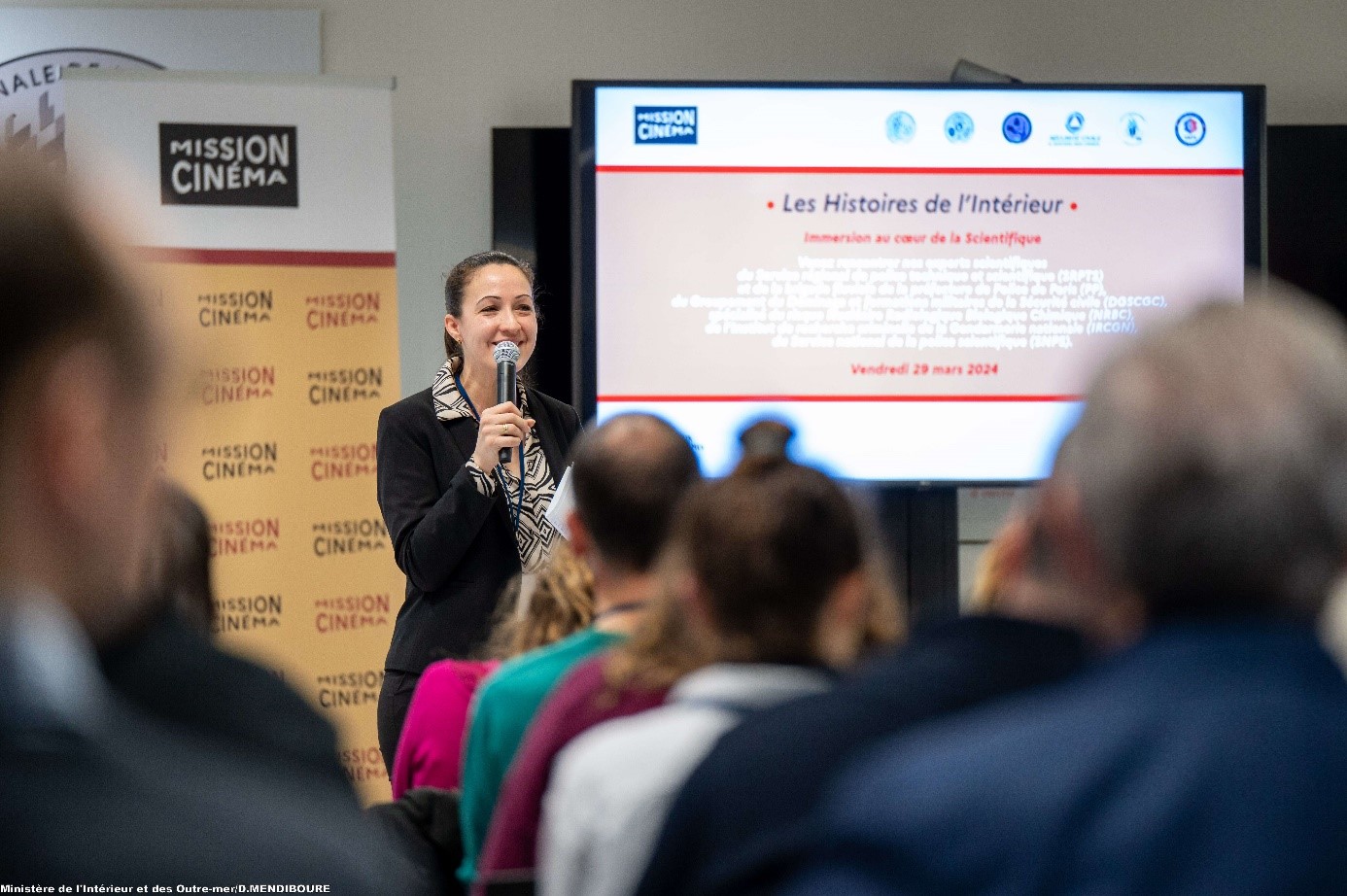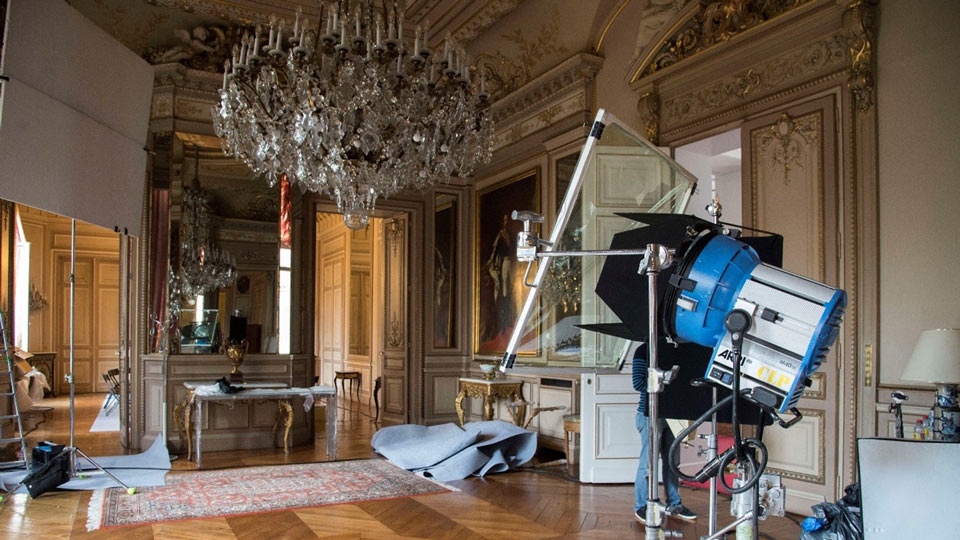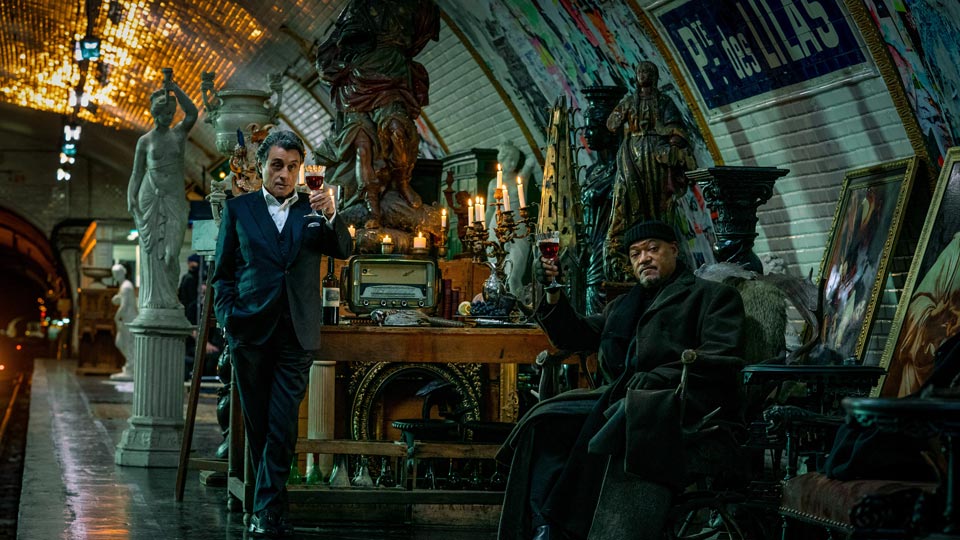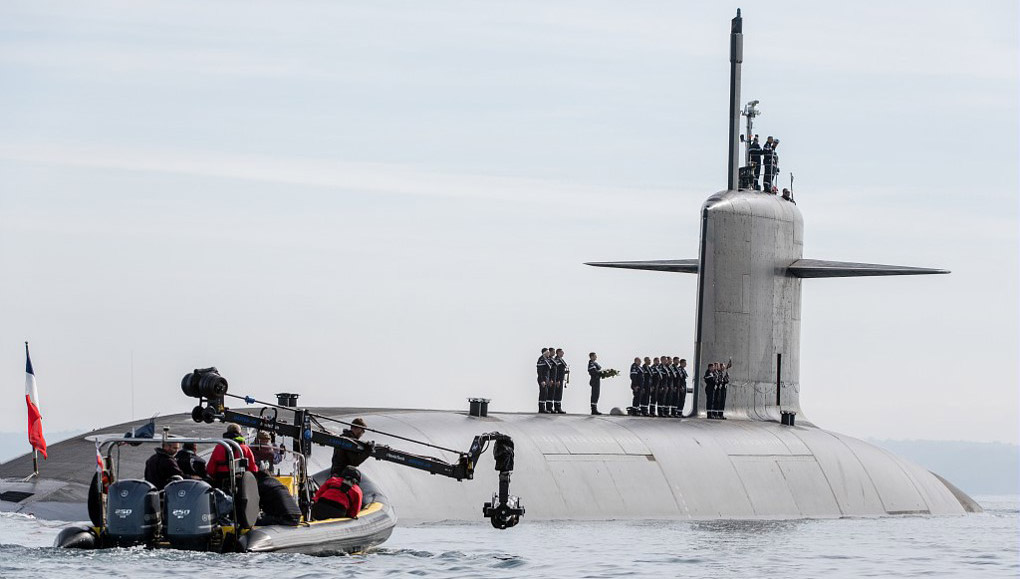To go further in enhancing the State's intangible heritage, the French Interior Ministry has launched its Cinema Mission in May 2023. "The Ministry decided to make its support measures more understandable and more accessible to the cinema and audiovisual worlds, through the creation of a single address that centralizes all requests.”
The Cinema Mission is coordinated by the DICOM, in conjunction with the Minister's Office, and is made up of seven members, including two members of the two national police forces of France (one of each), one of the national security, one of the General Directorate of Internal Security (DGSI) and one of the Paris police headquarters. “Some of them have other tasks, others are 100% dedicated to the mission, but everyone goes into action to meet the needs and expectations of professionals. This organization makes our worlds and the diversity of our professions more accessible.”
More than a thousand sites, spread across the entire country in mainland France and Overseas Territories, can be made available for filming. “It’s very difficult to quantify.’’ Police squads and precincts, fire stations, shooting ranges: a significant diversity of locations makes up this heritage. “There are also police academies, prefectures and sub-prefectures. Production teams often take advantage of the unique architecture of the Hauts-de-Seine prefecture to depict an airport or a lawyer’s office’’. Recently,Coralie Fargeat shot there part of her movie “The Substance’’, in official competition at the Cannes Film Festival.
The range of locations is so vast that members of the Cinema Mission sometimes discover places they didn't know existed. “We have former premises of the Bank of France and even an episcopal residence, which are unexpected.” Police custody cells can also accommodate filming: it has been the case for “Oh Mercy!’’ (Roubaix, une lumière) by Arnaud Desplechin and, more recently, for “Beating Hearts’’ (L’Amour Ouf) by Gilles Lellouche, also in competition at the Cannes Film Festival.
Cinema, television, student short films… the Cinema Mission is open to all types of filming. “Since 2020, we have hosted more than 170 shoots.” Foreign productions are also welcome. “The filming of the series “Transatlantic’’ (Netflix), by Anna Winger and Daniel Hendler, partly took place at the Bouches-du-Rhône prefecture.” The organization and location scouting involved substantial work. “First we receive a request, we examine it, and then we propose the locations and dates that suit the site staff and the film crews.”
For the sake of realism
The Cinema Mission can connect professionals who might be interested with an expert, in order to really grasp an internal procedure, give truth to a story or even learn the appropriate technical terminology. “This service is free for the professionals who work in the cinema, audiovisual and publishing industries. We provide our concrete and technical knowledge of the professions of the Interior. Artists are free to take advantage of these resources.” For instance, to write his movie “November’’, director Cédric Jimenez had the opportunity to meet some of the police officers responsible for investigating the 2015 Paris terrorist attacks.
For her book 18.3 – Une année à la PJ, French author Pauline Guéna did a long-term immersion with the judicial police of Versailles. A few years later, director Dominik Moll decided to adapt one of the book’s short stories, which became the multi-César-winning film “The Night of the 12th’’ (La Nuit du 12). He in turn participated in an immersion with the judicial police, of Grenoble in his case, for a few days. “The circle was complete.”
The Cinema Mission also provides poster and logo kits. “If a production needs to reproduce a police, gendarmerie or fire station in another location, these props can make the difference. We also provide wallpapers for computers. The series “The Bureau’’ (Le Bureau des Légendes) (Canal +) by Éric Rochant benefited from this support. Regarding the loan of equipment however, it is only possible when the equipment needed is not already available elsewhere. “Screen-printed vehicles, uniforms, etc., can usually be found at private dealers. But in Overseas Territories for instance, since this market does not exist, we lend the props.”

“To feed the imagination”
In addition to providing support, the Cinema Mission organizes meetings to present the services and careers of the Interior. Authors, screenwriters, directors and producers who go to these meetings can interact with working professionals. “The Interior’s meetings serve to highlight certain little known or understood professions, which may interest the professionals of the TV and cinema industries. Recently, we organized an immersion in the “Tripot de Beauvau’’, a reproduction of a clandestine gaming room within the ministry that is used to train investigators of the central division of gaming and racing enforcement.’’
Filmmakers, screenwriters and producers attend these meetings, as well as cinema and fiction development managers from Gaumont, Pathé, France TV and UGC. “We developed these meetings to feed the imagination by showing the reality of our jobs. Now, they are giving rise to new series and film projects. We can say that the mission is fully launched,” Catherine Moreau enthuses.





